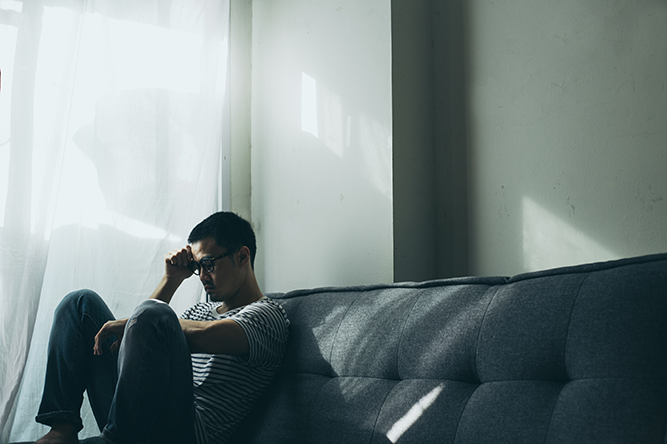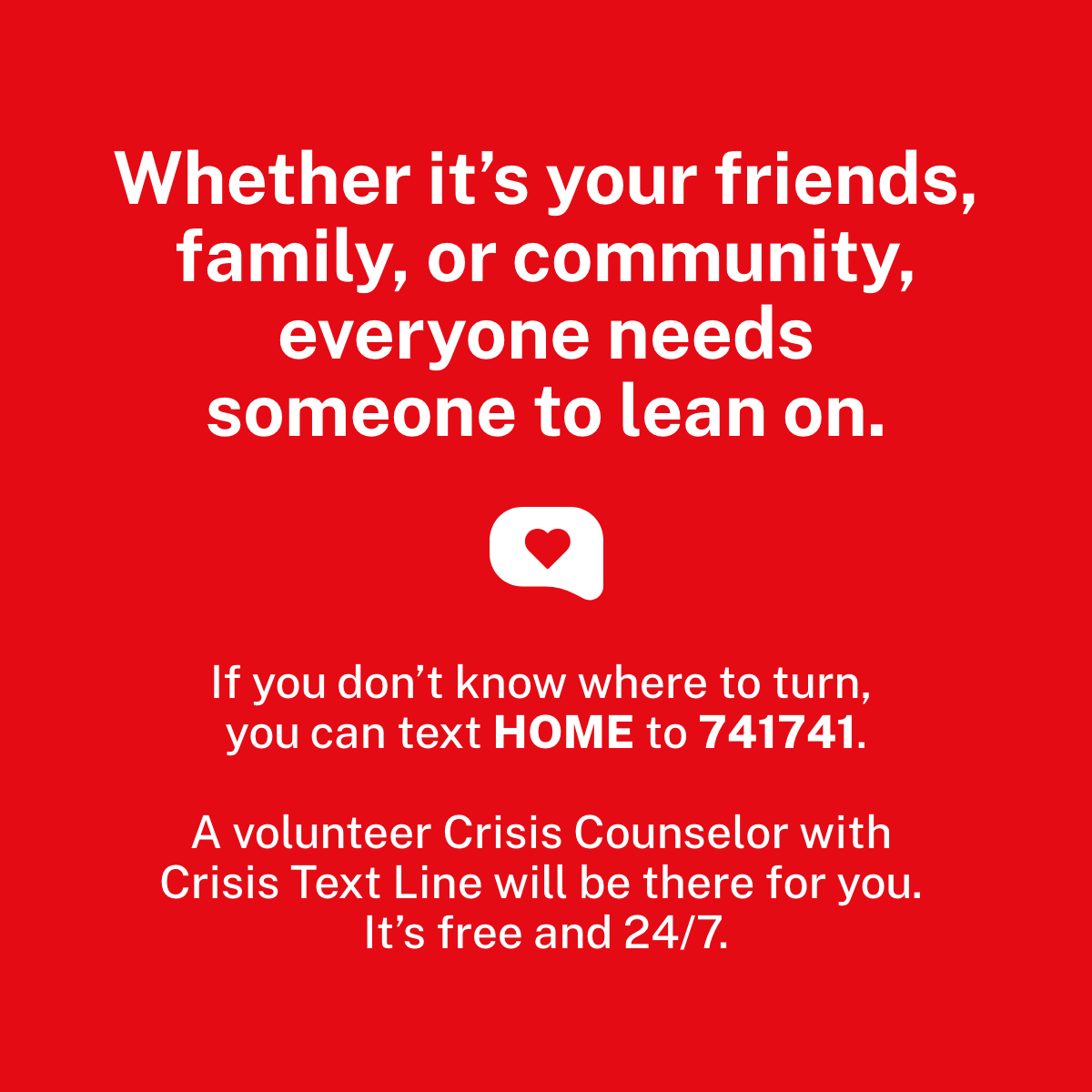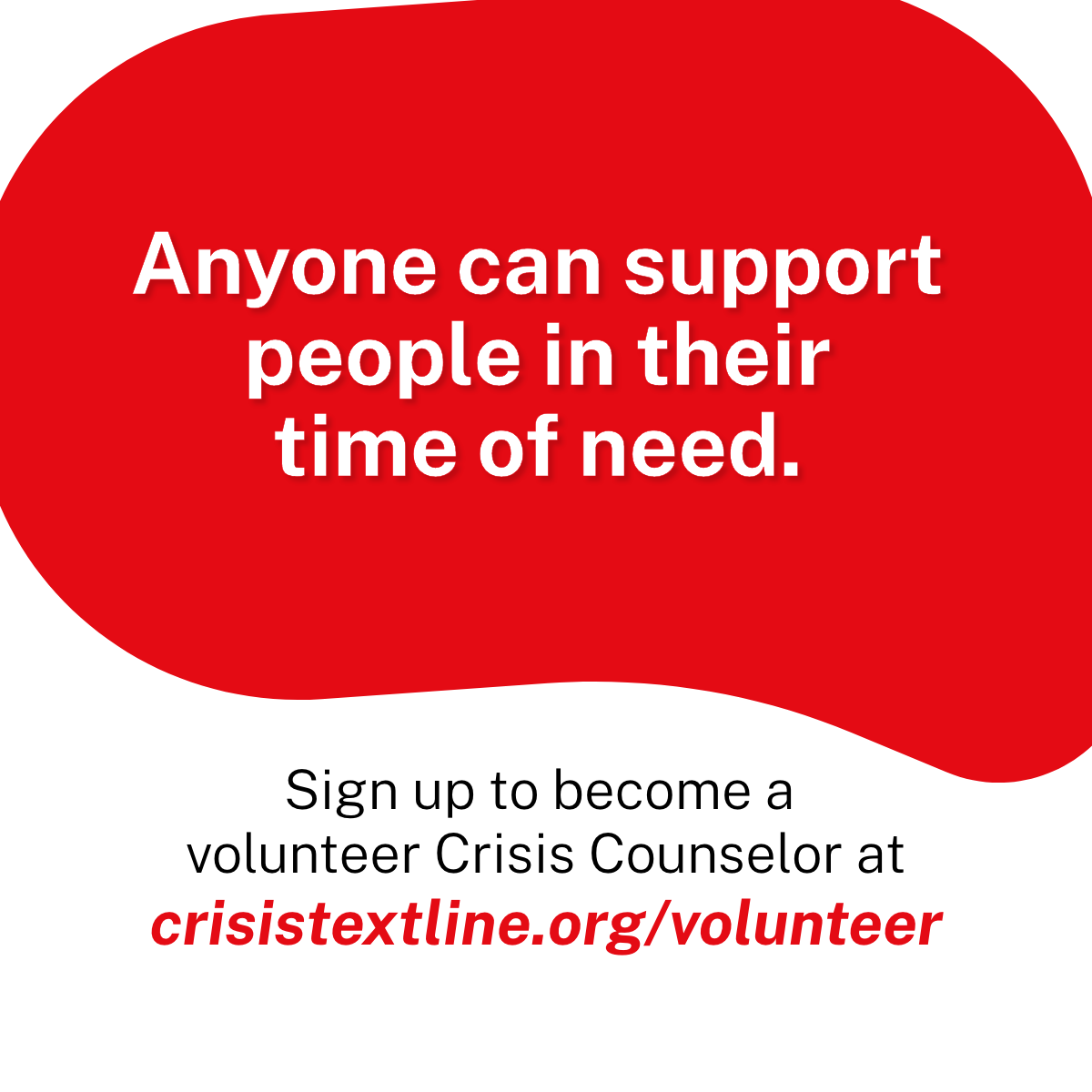Anxiety


How to Cope with Anxiety
Text CONNECT to 741741 for free, confidential support from a trained volunteer Crisis Counselor, available 24/7.
We are always here to listen, support and help you feel better. Simply text CONNECT to 741741 for FREE, 24/7 crisis counseling for anxiety. Whether you’re feeling anxious, overwhelmed or unsure how to cope, we’re here to guide you towards safety and calm. Together, we’ll help you find healthy ways to navigate anxiety and move from feeling totally overwhelmed to a cool, calm “I’ve got this.”
Understanding Anxiety? #
People can feel anxious about many situations: the first day of school, a job interview, a first date. Anxiety is that flutter of “what if” that might make your heart race and your palms sweat. There’s a difference between healthy anxiety and a paralyzing fear about the future.
If you’re experiencing anxiety, know that you’re not alone. According to the National Alliance on Mental Illness (NAMI), anxiety disorders are among the most common mental health disorders in the U.S., affecting over 40 million adults each year. They’re not just an adult issue as more than 25% of teens aged 13 to 18 live with anxiety today.
Healthy Ways to Find Your Calm #
If you’re currently feeling anxious, even thinking about the steps on how to tackle it could feel overwhelming. You don’t have to face this challenge alone. So, here are some steps to get you started:
- Text us. If your mind is racing a million miles a minute, you may need help now. Like, right now. Good thing we’re here 24/7 to help you work through your anxious thoughts and get you to a cool, calm place. Text CONNECT to 741741 to chat with a real human.
- Blow off some steam. Exercise is important for both your physical and mental health. If your thoughts are racing and you’re feeling overwhelmed, try lacing up your shoes and going for a walk, tapping it back in a spin class, or getting into flow at yoga.
- Get some Zzzzs. Try to establish a routine that allows you to get a restful 6-8 hours of sleep every night.
- Talk to a pro. Managing your mental health is part of managing your health. Finding the right therapist could help you hone in on the thoughts and situations that lead to your anxiety.
Recognizing the Signs #
Anxiety symptoms are different for everyone. According to the NAMI, some symptoms can include:
- Feeling restless, wound-up or on-edge
- Hyperactivity
- Trouble sleeping
- Fatigue
- Difficulty concentrating
- Irritability
- Muscle tension
- Difficulty controlling feelings of worry
Are you currently struggling? Text a Crisis Counselor at 741741, or use the mobile text button below to text from your phone.
Types of Anxiety: #
People are all different—and so is anxiety. According to the American Psychiatric Association, the most common anxiety disorders are:
- Generalized Anxiety Disorder: Excessive worry that is disproportionate to normal anxiousness around upcoming life events (such as work or school).
- Social Anxiety Disorder: Intense fear of social interactions, making it hard to go out, make friends, or interact with others.
- Panic Disorder: Recurrent panic attacks that cause someone to change their behavior in order to avoid having them. Panic attacks are more than just a typical meltdown; they’re an intense physical reaction to fear often causing an accelerated heart rate, sweating, and difficulty breathing.
- Separation Anxiety Disorder: Fear of being separated from someone usually because of worry that something may happen to them while they’re away.
- Specific Phobias: Intense fear about a specific thing or situation (ex. spiders, heights, flying).
Anxiety vs. Depression #
Sometimes people experience anxiety along with other mental health disorders. Many people also experience depression. And, while people may experience both disorders, it’s important to note that they have different symptoms and causes.
Anxiety vs. Panic #
Think of anxiety and panic as cousins: they’re linked, though not always one and the same. It’s common to have panic attacks as a fear response with anxiety disorders. It’s also possible to have an occasional panic attack without having a disorder. Panic attacks can be scary—they often feel like a heart attack. The good news? They don’t do any long-term damage to your body. That doesn’t mean they aren’t a big deal. Don’t forget that we are always here for you, 24/7.
Anxiety vs. Stress #
Stress is a totally normal and expected response to situations and changes in our lives. Anxiety can also manifest as a response to stress. The key is recognizing when normal stress shifts into excessive anxiety about specific situations or events.
What Causes Anxiety? #
Simply put, no one thing causes anxiety. However, there are a few things that can increase your risk:
- Genetics. Researchers have found that people who develop anxiety disorders before the age of 20 may have a relative who lives with anxiety as well.
- Brain Chemistry. Science shows that stress can change the chemical balance in the brain. So it is no surprise that this chemical change can affect your mood.
- Personality. For some people, their personality can make them predisposed to certain anxiety disorders.
- Life Events. Traumatic events can change our lives and can change our brains. Sometimes, anxiety can manifest around large or challenging life changes.
Trauma. Acute and prolonged trauma can contribute to both intermittent and long-term anxiety. For example, racism can cause trauma, which can lead to anxiety.
Coping Strategies for Anxiety #
Anxiety can feel overwhelming. It’s also highly treatable. Some common treatments include:
- Deep Breaths. Focus on your breathing to calm and center yourself.
- Stress Less. Stress management techniques such as exercise, meditation and mindfulness can help manage stress.
- Get some shut-eye. Maintaining a regular sleep schedule can regulate your mood and stress.
- Talk to a professional. A therapist may be able to help you manage triggers and symptoms. Therapists and doctors may also prescribe medication to help manage your mental health.
- Remember – it’s always okay to ask for help. In fact, asking for help is brave. Looking to get started? Try talking to your doctor to learn more about how you are feeling and ways to take care of your mental health.
Text a Crisis Counselor at 741471. You’re not alone.
Serene Soundscapes Playlist #
Unwind and find some calm with our Serene Soundscapes playlist below, perfect for easing your anxiety this week! 🎶✨
Spread the Word–Provide 741741 to a Friend #
You never know who might need Crisis Text Line. Pass it on and tell the people in your life to text CONNECT to 741741 if they ever need support.



Looking to make an impact? You can help change and save lives, one text at a time.
Volunteer Virtually at Crisis Text Line

